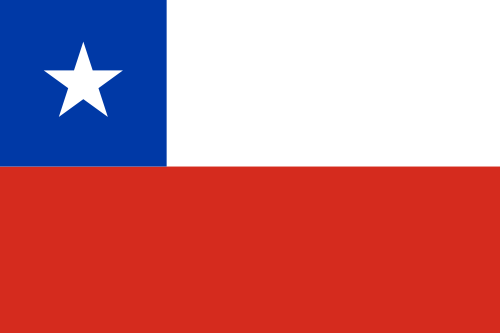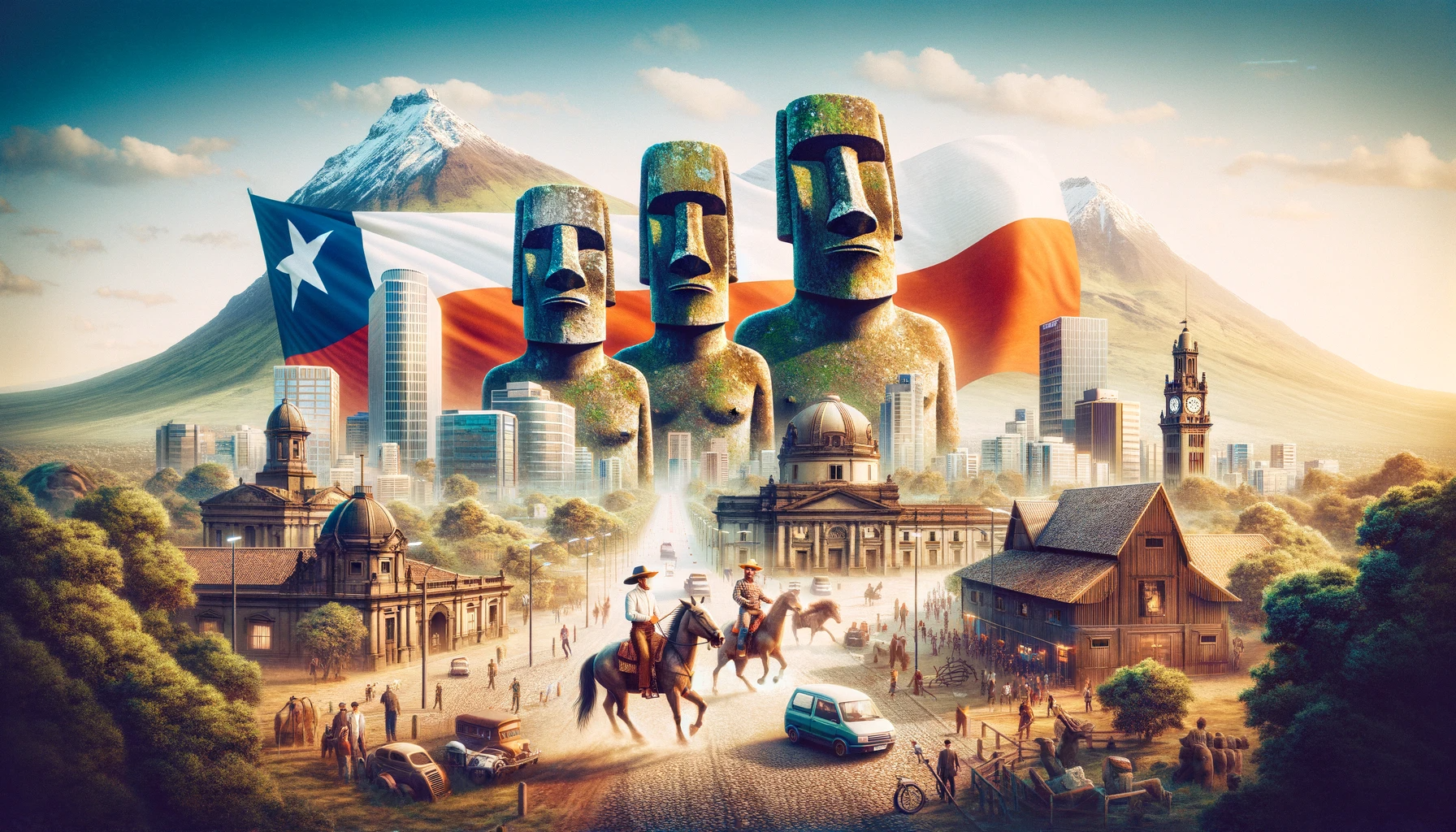Chile is a country of remarkable geographical diversity and cultural richness, with a history that spans from ancient indigenous civilizations to a modern, prosperous, and democratic society. Chile is confident in its achievements, and is committed to addressing ongoing challenges in reducing inequality, enhancing social inclusion, and ensuring sustainable development.
List of Public and National Holidays in Chile for the year 2024
- New Year’s Day: Monday, January 1, 2024
- Good Friday: Friday, March 29, 2024
- Easter Saturday: Saturday, March 30, 2024
- Labour Day: Wednesday, May 1, 2024
- Navy Day: Tuesday, May 21, 2024
- Feast of Saint Peter and Saint Paul: Saturday, June 29, 2024
- Lady of Mount Carmel: Tuesday, July 16, 2024
- Assumption Day: Thursday, August 15, 2024
- Independence Day: Wednesday, September 18, 2024
- Army Day: Thursday, September 19, 2024
- Day of the Race: Monday, October 14, 2024
- Reformation Day: Thursday, October 31, 2024
- All Saints’ Day: Friday, November 1, 2024
- Feast of the Immaculate Conception: Sunday, December 8, 2024
- Christmas: Wednesday, December 25, 2024

History
- Early Inhabitants: Before European colonization, Chile was inhabited by indigenous peoples like the Mapuche in the central and southern regions and the Atacameños in the north.
- Spanish Colonization: Conquered by Spain in the mid-16th century, Chile became part of the Viceroyalty of Peru. Spanish rule introduced Catholicism and colonial architecture.
- Independence and 19th Century: Declared independence in 1818 under Bernardo O’Higgins after years of struggle. The 19th century was a period of territorial expansion and conflicts, notably the War of the Pacific.
- 20th Century: The 20th century saw significant political and social changes, including the rise and fall of Salvador Allende’s socialist government and Augusto Pinochet‘s military dictatorship.
- Recent History: Returned to democracy in 1990, Chile has since been recognized for its stable governance and economic growth, although it faces challenges like inequality and demands for more inclusive policies.
Geography
- Location and Terrain: A long, narrow country stretching along South America’s western edge, with the Andes to the east and the Pacific Ocean to the west. Its diverse geography includes deserts, fertile valleys, forests, lakes, and glaciers.
- Climate: Varies from the world’s driest desert in the north, the Atacama, to a Mediterranean climate in the center, to a temperate rainforest in the south.
Culture
- Ethnicity and Languages: Predominantly of European (mainly Spanish) and indigenous descent. Spanish is the official language, with indigenous languages like Mapudungun also spoken.
- Arts and Literature: Rich in literature with Nobel laureates like Gabriela Mistral and Pablo Neruda. Notable in visual arts, music, and dance, particularly the national dance, the Cueca.
- Religion: Predominantly Roman Catholic, but with increasing religious diversity.
- Cuisine: Known for its seafood, beef, fruits, and wines. Traditional dishes include empanadas, cazuela, and asado.
Economy
- Key Sectors: One of the world’s largest producers of copper. Other sectors include agriculture, forestry, fisheries, and winemaking.
- Trade: Strong focus on export-oriented policies. Significant trade agreements with countries around the world.
- Challenges: Despite being one of South America’s most stable and prosperous nations, Chile struggles with high levels of income inequality and regional disparities.

Politics
- Government Structure: A democratic republic with a president as head of state and government. The political system is characterized by a strong presidency and a bicameral legislature.
- Political Landscape: Has a multi-party system. Post-dictatorship, politics have been dominated by center-left and center-right coalitions.
- Human Rights and Legal System: The country has worked to address human rights abuses from the Pinochet era. The legal system is based on civil law.
Society
- Population: A mix of urban and rural populations, with a significant portion living in the capital, Santiago. There’s a growing immigrant population, primarily from other Latin American countries.
- Healthcare and Education: Has one of the region’s best healthcare and education systems, though disparities exist.
- Social Issues: Addressing social inequality, education reform, and indigenous rights are ongoing challenges.
Science and Technology
- Research and Development: Focuses on areas like mining, agriculture, and environmental sciences. The clear skies in northern Chile are ideal for astronomical research.
- Technology Adoption: Rapidly growing, with increasing internet penetration and technological innovation.
Arts and Literature
- Literary Tradition: Rich literary history with two Nobel Prize winners in Literature, Gabriela Mistral and Pablo Neruda. Contemporary authors continue this tradition.
- Visual Arts: Notable for vibrant street art, especially in Valparaíso, and traditional crafts like Mapuche textiles.
Sports
- Popular Sports: Football is the most popular sport, with a strong national team and successful domestic league. Other sports include tennis, rodeo (the national sport), and skiing.
- International Competitions: Chile has hosted and performed well in various international sporting events, including the Copa América in football.
International Relations
- Foreign Policy: Active in regional and international affairs, member of the United Nations, Organization of American States, and a founding member of the Pacific Alliance.
- Environmental Leadership: Leading in environmental protection efforts in the region, especially in conservation and renewable energy initiatives.
Challenges and Prospects
- Economic Diversification: Working on diversifying its economy beyond mining and increasing its competitiveness in global markets.
- Social Reforms: Addressing demands for greater social equity, educational reform, and indigenous rights.
- Environmental Management: Balancing natural resource exploitation with environmental conservation and responding to climate change impacts.

